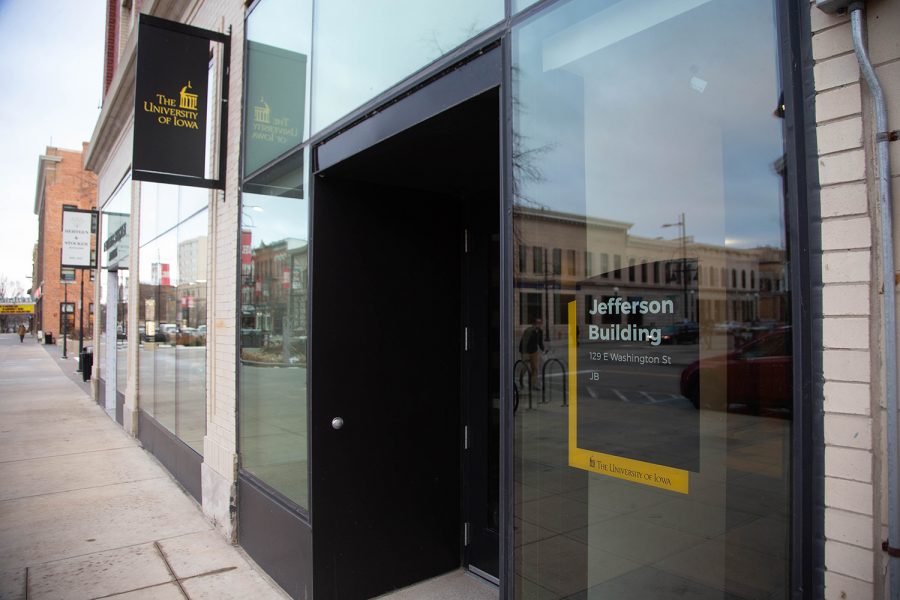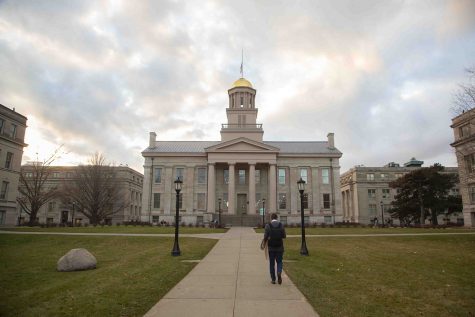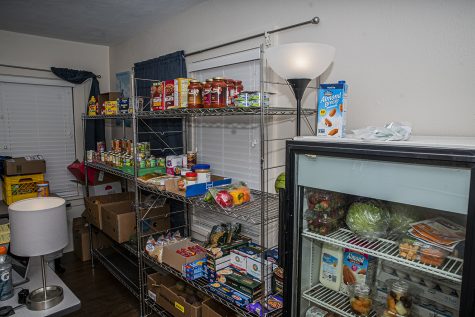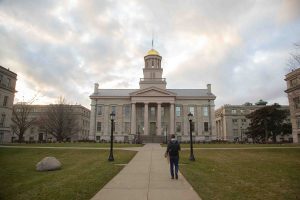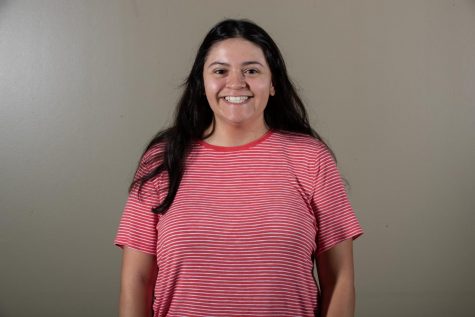Ombudsperson’s Office searching for associate ombuds position
Following a recent change in structure and staff members, the University of Iowa Ombudsperson’s Office seeks to fill the position of associate ombudsperson. The office serves as a problem-solving resource available to all students, staff, and faculty.
The Jefferson Building is seen on Monday, Dec. 9, 2019. UI Office of the Ombudsperson sees visitors from the university community to help with independent problem-solving and conflict resolution.
February 26, 2020
A campus mediation and conflict-resolving resource, the University of Iowa Office of the Ombudsperson, started the search this month for a new half-time associate ombudsperson following staff changes amid a growing caseload.
The position, formerly held by three-year Associate Ombudsperson Kristal Gibson, opened up in early February when Gibson transitioned to student accountability services. On Feb. 7, the UI Ombudsperson’s Office started a nationwide search to fill the position.
The search comes as the four-person Ombuds Office is expecting the most visitors the office has ever seen this year, said UI Associate Professor Rachel Williams, a half-time ombudsperson.
She said the number of visitors to the office has steadily gone up each year since it was established in 1985. The office added Gibson’s position in 2017 to accommodate the rise in cases, bringing the total office staff to one full-time ombudsperson, one part-time faculty ombudsperson, an office staffer, and Gibson’s role as part-time associate ombudsperson.
“This year we think we might hit 800 visitors, which would be a record for our office,” Williams said.
RELATED: Opinion: UI provides many resources to students with eating disorders
Cynthia Joyce, the office’s full-time UI ombudsperson, said the office wanted a diverse pool of applicants.
“We are problem solvers — people come into us, they talk about their problems, and we try and help them resolve their problems,” Joyce said.
Four ethical principles guide the work of ombudspersons: confidentiality, neutrality, informality, and independence, she said.
Joyce added that no prior ombudsperson training is required for the position. She said, however, that mediation and conflict-resolution skills are paramount for potential candidates.
“… There’s a major training you take to become an ombudsperson and then lots of professional continuing education for ombuds,” she said.
Having strong empathy and people skills are essential to the job of the ombudsperson, Williams said.
“You hear issues in this office, and oftentimes things haven’t been handled in the best way, but it’s really important to stay neutral, and it’s actually more helpful to your visitor … than if you get emotionally wrought by their story,” Williams said.
RELATED: Opinion: University Counseling Services should offer more long-term resources
She also said part of the job of an ombudsperson is to help UI community members find resources and be knowledgeable on how different parts of the university are interacting with people.
Ombuds offices exist at many different universities, government agencies, corporations, and nonprofits around the country and world, Joyce said.
“We’re just a tiny piece of that bigger profession,” she said.
The office services the whole UI community of more than 50,000 people, but she said undergraduate students are the hardest group for effective outreach.
“[Ombudspersons] are experts in understanding the university policy,” said Nikki Hodous, assistant director of student care and assistance at the UI Dean of Students’ Office.
Hodous said she makes weekly student referrals to the UI Ombuds Office, usually when students are facing barriers that are institutionally related.
“There’s no limit to the amount of hardships folks will experience … and while I hope it will be minimal, I believe that when somebody has something difficult going on they deserve to have the best access to resources and to the knowledge about what’s happening so they can have the true agency to make what decisions matters for them,” Houdous said. “I think Ombuds is one of the resources that can really help [people] see what’s in front of them, understand their options, and make their own educated decision in an experience that may not be pleasant.”



